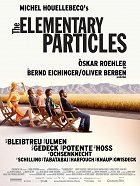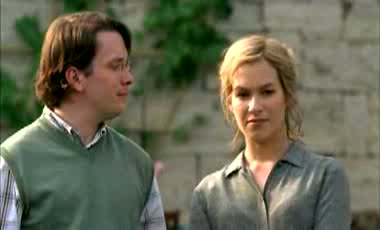Rendező:
Oskar RoehlerForgatókönyvíró:
Oskar RoehlerZeneszerző:
Martin TodsharowSzereplők:
Moritz Bleibtreu, Christian Ulmen, Martina Gedeck, Franka Potente, Nina Hoss, Uwe Ochsenknecht, Corinna Harfouch, Tom Schilling, Thomas Drechsel (több)Tartalmak(1)
A Michel Houellebecq sokat vitatott regényén alapuló film a két, egymástól merőben más féltestvért, Michaelt és Brunót, illetve zavaros szexuális életüket mutatja be. Kaotikus gyermekkorukat követően - hippi anyjuk csak afférjaival törődött - a molekuláris biológus Michael sokkal inkább érdeklődik a gének, mint a nők iránt, míg Brunot csakis szexuális vágyai kötik le, amelyeket azonban többnyire csak prostituáltakkal képes beteljesíteni. Bruno szánalomra méltó élete akkor változik meg, amikor megismerkedik a tapasztalt Christiane-nel, míg Michael pedig újra találkozik gyermekkori szerelmével, Annabelle-lel. (Mokép)
(több)Recenziók (2)
An interesting psychological drama filmed in a way that everyone can choose their own interpretation and interpret the message of the film in their own way. Some of the motifs didn't resonate with me, but others more than made up for it. The film's strength lies in the casting of German stars who have contributed to the rise of German cinema in the last decade. Interesting characters, casual dialogues about somewhat crazy problems, and sexual openness that may have ventured into controversial positions if it were made by another director and screenwriter. It is the story of two stepbrothers, their reconciliation with an unscrupulous and selfish narcissistic mother, and their search for happiness and a suitable partner. Overall impression: 75%. For me, the film fluctuates between comically lightened and tragically exposed.
()
Perhaps in the distant or near future, it will be possible to rationalize love and human reproduction and fit them into an equation á la Heisenberg or Bohr, but until then, we are all condemned to be guided by our unconsciousness, especially sexual instinct - this time á la Sigmund Freud. Indeed, libido is truly the main driving force behind the motives of both main characters, although it manifests itself differently in each, and it is skillfully accompanied by another well-known psychiatric maxim in the style of "Tell me about your mother." From the subsequent ferment, two personalities emerged, from whose comparison it may seem that the rational and objective approach to the sexuality of the scientist-brother prevails rather than the sexual passion bordering on the obsession of the teacher-brother. Can this statement be made even after watching the final minutes of the film?
()

